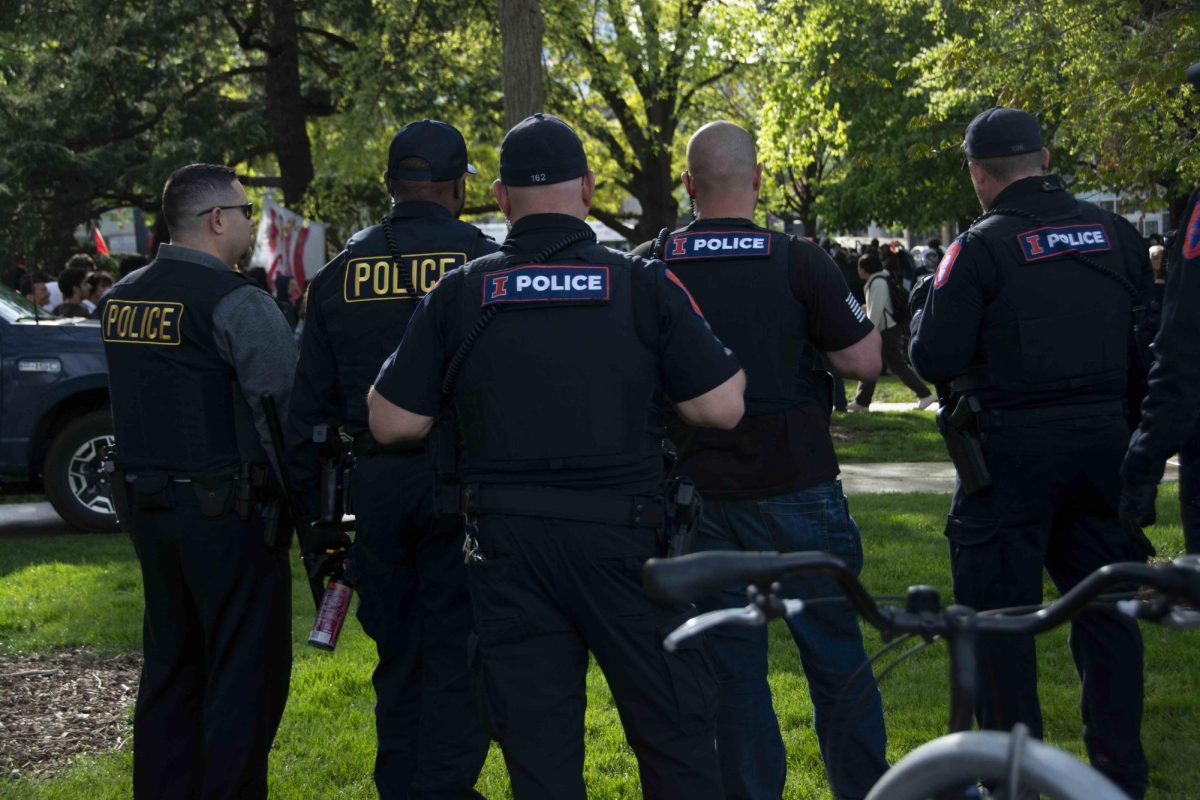1970
Graduate employees in the Assistants Union begin working to improve working conditions at the U of I.
1988
The Graduate Employees’ Organization is founded in an effort to give voice to graduate assistant concerns over issues such as salaries, workload, and healthcare, as well as a perceived lack of campus parking.
1994
Get The Daily Illini in your inbox!
The GEO successfully rallies grads against the administration’s plan to stop issuing staff ID cards to assistants. With the ID cards, assistants are able to retain many benefits such as staff parking, access to the Illini Credit Union and discounts as employees of the state of Illinois.
1995
GEO affiliates with the Illinois Federation of Teachers, joining over 70,000 Illinois educators in that organization. During the summer, the GEO forms the Alliance of Graduate Employee Locals (AGEL) with other graduate employee unions in the American Federation of Teachers.
1996
The GEO filed 3,226 signatures of graduate assistants as a petition with the Illinois Educational Labor Relations Board (IELRB) to request a union election. Instead of agreeing to an election, the administration chose to fight the GEO in court, arguing that graduate employees are students and are therefore not covered by the Labor Act.
1997
In the spring, graduate employees chose GEO as their union representative with 64 percent of the vote. The election was overseen by a local group of ministers and lay workers. The University administration refused to recognize the results of that election and rebuffed repeated efforts to engage in dialogue with the GEO during the fall of 1997.
1998
The Labor Board rules that while student status does not constitute an explicit exclusion from the Labor Act, the work of graduate employees is so deeply intertwined with their education that their jobs are primarily educational. The dissenting opinion in that case argued that TAs and GAs are employees. The GEO immediately appeals the case to the Illinois Court of Appeals. The GEO holds its first “Work-In,” an event that brings more than 400 graduate employees to the Henry Administration Building to teach classes, grade papers and educate the public about the goals of the GEO. In March, a student referendum in support of graduate employees’ right to union representation passed. At the end of the month, 55 graduate employees and supporters held a 20-hour sit-in at the Board of Trustees office to draw public attention to the administration’s policy of non-recognition.
2000
The Illinois Court of Appeals, in a unanimous decision, overturned the decision of the Illinois Educational Labor Relations Board (IELRB) to deny graduate employees the right to choose union recognition. This decision was later reaffirmed by the Illinois Supreme Court. The IELRB approved preliminary guidelines for who will be allowed to vote in an upcoming union election for graduate employees at the University of Illinois. Their decision excluded virtually all of the Teaching, Research, and Graduate Assistants on the Urbana-Champaign campus.
2001
The GEO membership holds a two-day work stoppage in response to the IELRB decision.
2002
The GEO schedules a three-day strike for the second week of April.
On March 13, nearly 50 members and supporters of the GEO enter and occupy the Swanlund Administration Building in an effort to gain the opportunity to negotiate with the Board of Trustees. University of Illinois officials reversed their long-standing policy of refusing to negotiate with the Graduate Employees’ Organization (GEO). Provost Herman concedes to a series of ongoing meetings with GEO representatives to determine which graduate employees will be eligible to vote in a union election and will be covered by a union contract. The University argues that most grad employees should be excluded from collective bargaining. The day before the strike, the University agreed that almost all TAs and GAs be included in the bargaining unit. However, the University still did not agree that RAs have a right to collectively bargain. The GEO holds an ill-timed union election in December. Graduate employees overwhelmingly vote for GEO to represent them at the bargaining table.
2003
The GEO elects an official bargaining team and votes on a bargaining platform in February. During the summer, the GEO negotiates a 3 percent raise for Fall 2003-2004, breaking a two-year wage freeze. Additionally, the University agrees to provide a dental and vision plan for graduate employees.
2004
During August, GEO members ratify the group’s first contract.
2004-2006
The GEO focuses on streamlining the grievance process and on advocating for better healthcare for grads and their dependents. As the first contract expired in August 2006, grads return to the bargaining table hoping to focus on healthcare.
2007
The GEO ratifies an improved contract for 2006-2008 with back-pay and a greater subsidy of graduate healthcare and wages.
2007-2008
The GEO focuses on building membership and developing stronger relationships with community organizations and campus labor groups.
2009
The GEO and its 2,600 members go on strike on November 16-17, when the GEO bargaining team fails to reach an acceptable contract agreement. A tentative agreement is reached in the afternoon on November 17; it is finalized in the evening and the strike is called off. The GEO strike marks one of only five involving more than 1,000 workers in the United States in 2009.
2010
Incoming students in several FAA departments receive base-rate tuition waivers, covering the lowest in-state tuition rate. GEO fights to enforce the contract.




